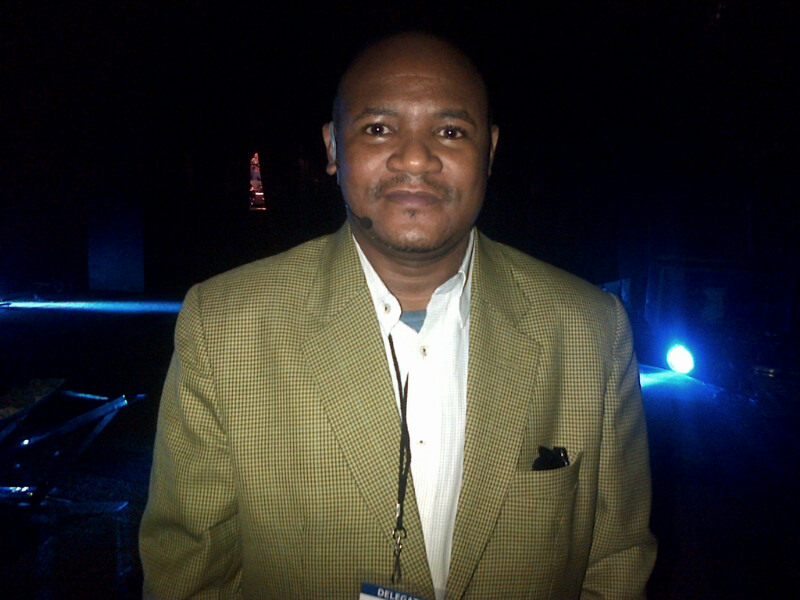I was in Musoma the capital of Mara Region in Tanzania 1st week of October 2014 for a week to interact with key leaders of civil societies from Nigeria, Tanzania, Malawi and Ghana to mention but few. One of the issues that came up in our discussion was about domestic spending versus international donor money in Africa to finance our health sector. One of the countries mentioned above has over 70% of its annual health budget being financed from international donor funds. In my country ‘Nigeria’ many of our excellent projects in health sector are largely finance by international funding. Our National Blood Transfusion Services is being run at almost 100% donor funds, our HIV/AIDS control programme at national level and almost all the 36 states plus Abuja are largely funded by donor money, so also our Malaria and Tuberculosis and many other health system strengthening and service delivery. In some African countries even to attend annual World Health Assembly in Geneva by our health ministers are being financed by donor funds. Last year in November 2013, a meeting was convened inside the Africa Union to brainstorm about domestic health spending as a way of ensuring sustainability and ownership of many of our health projects. These calls do not mean that we don’t need international donor funds, however as a continent we need to define our priorities well and channel international funds as a complimentary to our own domestic health spending.
The biggest push this year was an event that took place in New York during the United Nations General Assembly in September when a passionate call for low and middle income countries to increase their spending on health was launched by Kenyan President Uhuru Kenyatta at an event titled “Domestic Financing for Health: Invest to Save,” President Kenyatta laid the groundwork for a strong partnership for increased investments in health, bringing together leaders from several African countries, the African Union, United Nations Foundation and the Global Fund to Fight AIDS, Tuberculosis and Malaria.
Ethiopian Prime Minister Hailemariam Desalegn and Rwanda Minister of Health Dr. Agnes Binagwaho joined President Kenyatta and other African leaders at the event, signaling a unity of purpose in a bid to sustain momentum against the world’s most challenging diseases.
Countries implementing health programs financed by international funders are playing a bigger role in financing health. This has led to a tremendous impact on global health. Last year during the Global Fund replenishment conference, which galvanizes resources for the fight against HIV, tuberculosis and malaria, several African countries made significant commitments to increasing their investments in response to the diseases and in strengthening health systems in their countries.
The meeting observed that in the coming years, these countries are expected to take a leading role not only in urging the world to spend more in fighting diseases but also in investing more of their own money toward saving lives of their people. Yesterday’s meeting, led by Kenya, and signals an accelerated effort toward that end.
President Kenyatta urged African countries to explore ways to galvanize local resources for health, to build health systems and sustainable interventions against diseases. “We have depended on external help for health services, but we have to mobilize domestic resources to find our own solution instead of moving from one crisis to another,” President Kenyatta said.
The President’s keynote remarks led to a panel discussion that made a strong case for spending more local resources on health as a way to saving lives as well as strengthening economies.
It was observed in the meeting that a report published last year by the AU and UNAIDS said that from 2001 to 2011, health budgets in AU Member States increased from 9 percent to 11 percent of public expenditures. Six AU Member States – Liberia, Madagascar, Malawi, Rwanda, Togo and Zambia – have achieved a target set in Abuja in 2001 to allocate 15 percent of public expenditure to health.
The meeting focused on the need to pool local and global resources to garner substantial wherewithal to enable the world to achieve victory over the world’s deadliest infectious diseases – HIV, tuberculosis and malaria. The meeting also explored what leaders from low and middle income countries can do to accelerate wide-ranging and innovative investments in health.
Lawrence H. Summers, Professor and President Emeritus at Harvard University, who now chairs the Lancet Commission on Investing in Health,, also spoke at the event. He argued that today we have the technology and financial means to close the health gap between poorer and richer nations, to achieve what he is calling “a grand convergence in health.”
“The grand convergence would dramatically reduce infectious, maternal and child deaths within one generation, averting 10 million deaths in 2035,” Dr. Summers said. “Governments in low and middle income countries must invest in health. Just 1 percent of their economic growth over the next two decades would fund the grand convergence. The global community must support poorer countries and spearhead the search for new technologies.”
Another call last week was made by the richest black man in the work Aliko Dangote when during a chat with CNN monitored by Channels TV on 23rd October 2014 made an appeal that international community should support Africa with more investment rather than aid as a way of ensuring sustainable development.
The various calls are signals that African countries need to be supported to explore their domestic potentials and resources for funding their health sector.
This article is 1st published in Daily Trust Newspaper of 28th Oct 2014 by Dr Aminu Magashi Garba, Coordinator Africa Health Budget Network (AHBN). He can be reached at healthweekly@yahoo.com and followed @HReporters


